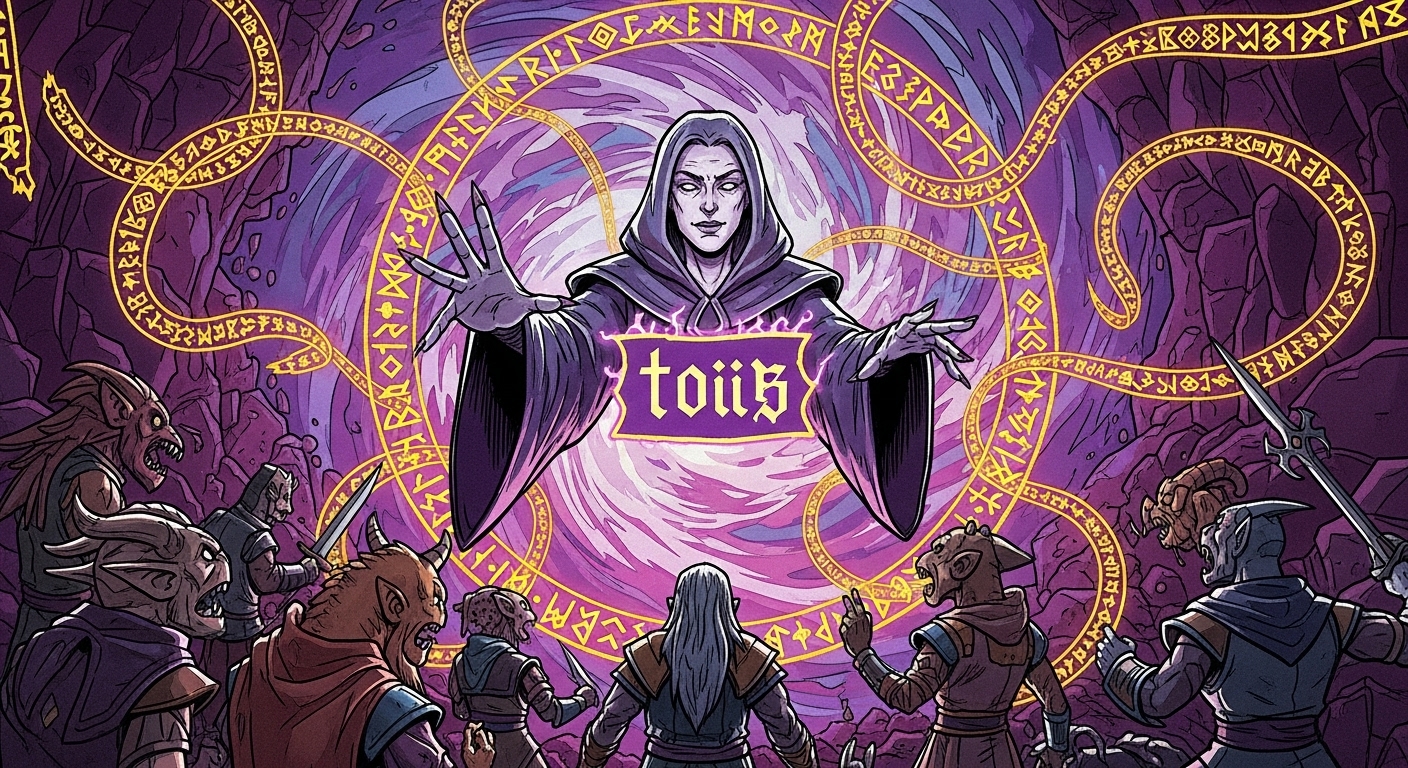Command

- Level: 1
- School: Enchantment
- Class: Bard, Cleric, Paladin
- Casting Time: Action
- Range: 60 feet
- Components: V
- Duration: Instantaneous
You speak a one-word command to a creature you can see within range. The target must succeed on a Wisdom saving throw or follow the command on its next turn. Choose the command from these options:
Approach. The target moves toward you by the shortest and most direct route, ending its turn if it moves within 5 feet of you.
Drop. The target drops whatever it is holding and then ends its turn.
Flee. The target spends its turn moving away from you by the fastest available means.
Grovel. The target has the Prone condition and then ends its turn.
Halt. On its turn, the target doesn't move and takes no action or Bonus Action.
Using a Higher-Level Spell Slot. You can affect one additional creature for each spell slot level above 1.
Tactical Usage
Immediate Control: Command provides instant battlefield control by forcing single actions on enemy turns. This 1st-level enchantment spell excels at disrupting enemy tactics and creating immediate tactical advantages.
Optimal Timing: Most effective when used to interrupt dangerous enemy actions or create openings for ally positioning and attacks.
Resource Management: Uses a 1st-level spell slot - accessible to low-level casters. No material components and only verbal component make this extremely resource-efficient.
Target Selection: Choose targets based on immediate tactical needs - halt dangerous attackers, drop weapons from key enemies, or force positioning changes.
Spell Combinations
Synergistic Spells:
- Hold Person: Follow up on creatures forced prone with Grovel
- Opportunity Attacks: Force movement with Approach or Flee to trigger ally reactions
- Spell Attacks: Use Halt to prevent enemy movement for easier targeting
Class Feature Interactions:
- Metamagic (Twinned): Affect two creatures with one spell slot
- Channel Divinity: Combine with cleric abilities for enhanced battlefield control
- Divine Smite: Coordinate with paladins for enhanced damage on controlled targets
Multi-Caster Coordination: Multiple commands can force complex positioning changes or lock down multiple priority targets.
Material Component Details
Component Acquisition: No material components required - only verbal component needed.
Component Handling: Verbal-only casting provides maximum flexibility and stealth potential.
Roleplay Opportunities: The spoken command becomes part of character personality - authoritative, pleading, or magically compelling tones.
Economic Considerations: No costs make this spell economically viable for unlimited use within spell slot constraints.
Creator Notes
Encounter Balancing: Single-action control affects one turn but can dramatically shift encounter dynamics. Consider how forced actions impact enemy strategies.
NPC Usage: Enemy clerics and commanders can disrupt party formations or force tactical disadvantages through strategic command usage.
Environmental Considerations: Noise restrictions might limit verbal component use. Language barriers don't affect the magical compulsion.
Campaign Integration: Excellent for social encounters where violence isn't desired but control is needed for story progression.
Environmental Interactions
Terrain Effects: All command options work regardless of terrain, though movement commands may be limited by environmental obstacles.
Weather Influence: Verbal component might be affected by extremely loud environments, though magic typically overcomes normal noise.
Structural Interactions: Approach and Flee commands work within available space - targets can't move through walls but will take the most direct available route.
Elemental Interactions: No specific interactions, though magical silence effects would prevent verbal component casting.
Common Rulings & Clarifications
Timing Questions: Effect occurs on the target's next turn, not immediately. Command must be one of the five listed options.
Target Limitations: Must be able to understand you, though magical compulsion overcomes language barriers. Creatures that can't perform the action are unaffected.
Duration Interactions: Instantaneous effect that influences one turn. Multiple commands don't stack but can affect the same target in subsequent rounds.
Mechanical Interactions: Commands follow literal interpretation - Drop affects all held items, Halt prevents all actions and movement.
Alternative Applications
Non-Combat Uses: Social control without violence, investigation assistance by commanding suspects to halt or drop evidence.
Social Encounters: De-escalate conflicts by commanding aggressors to halt, force confessions through drop (forcing release of hidden items).
Exploration Applications: Command hostile guards to flee, force bandits to grovel for intimidation, halt fleeing informants.
Utility Functions: Emergency crowd control, stopping thieves, or forcing cooperation in tense negotiations.
Related Spells
Same School: Other enchantment spells like charm person (1st level ongoing influence), suggestion (2nd level complex command), dominate person (5th level complete control).
Similar Effects: hold person (2nd level paralysis), suggestion (2nd level detailed instruction), compulsion (4th level movement control).
Progression Options: suggestion (2nd level complex commands), hold person (2nd level paralysis), dominate person (5th level total control).
Complementary Magic: comprehend languages (overcome language barriers), zone of truth (combine with social control), detect thoughts (understand target motivations).
Scaling Analysis
Level Progression: Remains useful throughout campaigns for its simplicity and immediate effect, though higher-level enchantments provide more comprehensive control.
Upcast Benefits: Additional targets make higher-level casting valuable for crowd control situations and multiple enemy encounters.
Campaign Phases: Consistently valuable across all character levels due to its instant effect and tactical flexibility.
Comparative Value: Excellent action economy for 1st-level spell slot, providing immediate battlefield control that scales with additional targets.
Narrative Flavor
Casting Description: Your voice carries supernatural authority as you speak the single word with magical compulsion that cannot be ignored.
Effect Manifestation: The target's eyes glaze momentarily as the magical command overrides their conscious will, forcing compliance with the spoken directive.
Personal Style: Clerics might speak with divine authority, while bards use persuasive magic, and paladins command with righteous conviction.
World Integration: Represents basic mind influence magic available to divine and social casters, often associated with leadership, authority, and social order.
50%